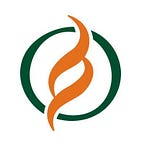Meet Retsilake, Community Health Volunteer and Champion in the Fight Against Malaria
Story by Samy Rakotoniaina and Misa Rahantason
Malaria is one of the leading causes of mortality among children under five in Madagascar. Atsimo Andrefana is one of Madagascar’s regions most severely impacted by endemic malaria. More than half of the population in this region lives more than five kilometers from the nearest health facility, putting Community Health Volunteers (CHVs) on the front lines in the fight against malaria.
Retsilake is one of the 6,000 high-performing CHVs supported by the USAID-funded Accessible Continuum of Care and Essential Services Sustained (ACCESS) project. ACCESS is implemented by Management Sciences for Health (MSH), in partnership with a consortium of international and local organizations, and alongside Madagascar’s Ministry of Public Health. The project is partly funded by the U.S. President’s Malaria Initiative (PMI).
Retsilake diagnosed and treated nearly 2,000 children from his village and the surrounding area during a particularly severe malaria outbreak in 2015. He understands the impacts of malaria on children’s health and this keeps him motivated to serve his community.
Retsilake has become a pillar of the community, a trusted leader, and health educator. Community members listen to his advice and seek his help when malaria symptoms appear, rather than relying on traditional healers.
As a CHV, Retsilake distributes insecticide-treated bed nets during campaigns, and conducts follow-up home visits to monitor the proper use of the nets. He also helps new users set up treated nets and properly demonstrates how to sleep under them to avoid mosquito bites.
Retsilake works with health facilities to identify pregnant women who remain at risk of malaria infection. He then refers them to the nearest health center for antenatal care and to ensure that they get the full series of intermittent preventive treatment.
Retsilake diagnoses children under five with a rapid fever test, and treats simple cases with ACT (artemisinin-based treatment). Early treatment saves many lives as the nearest health center is four hours away from his community. Children usually recover in three days.
Severe or complicated cases are referred directly to health centers. In addition, a counter-referral system creates a close collaboration between the health center and Retsilake to ensure follow-up at the village level.
Retsilake also conducts epidemiological surveillance of deadly diseases like malaria at the community level, and reports data to health centers. This process helps predict risks of epidemic outbreaks and enables an early response from the Ministry of Public Health.
Data availability is key in the fight against malaria. Retsilake uses the CommCare mobile application on a smartphone to deliver quality health services. He mastered the mobile application quickly and health data from his village is synced in real time with the national health information system.
Malaria surveillance, prevention, diagnosis, and treatment starts at the community level. ACCESS empowers community actors with the skills and tools needed to save lives and prevent outbreaks. However, the fight against malaria is a long-term battle, and CHVs like Retsilake play a crucial role as the first-line of defense. As the country now faces a potential outbreak of COVID-19, Retsilake and fellow CHVs continue their life-saving work, ensuring efforts to end malaria for good are maintained.
About the Program
The Accessible Continuum of Care and Essential Services Sustained (ACCESS) program is a five-year integrated health project funded by the United States Agency for International Development (USAID) and led by Management Sciences for Health. Through the ACCESS program, the US Government continues its support to the Government of Madagascar in accelerating sustainable health impacts for nearly 16 million Malagasy people — as measured by sustained reductions in maternal and child mortality and morbidity — and strengthening the Ministry of Public Health’s stewardship of the health sector.
